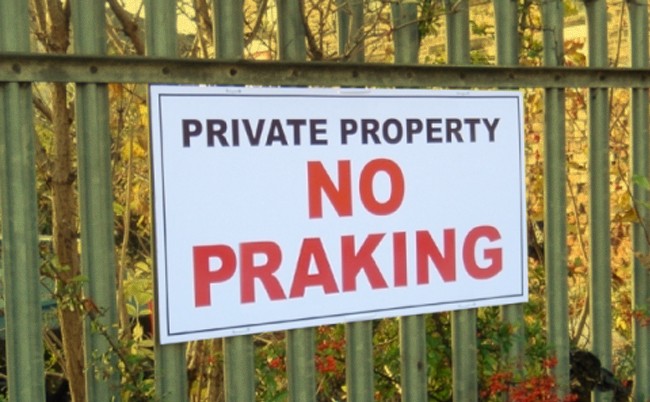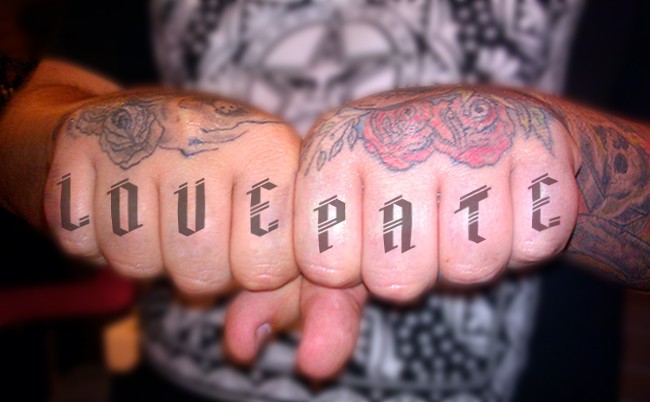With millions of pages printed by Solopress.com every year, it’s fair to say we’ve seen some spectacular spelling mistakes in our time. But these costly errors can be avoided… if you follow our simple steps to spelling success!
Spelling mistakes in printing do happen. This sad fact is hardly surprisingly really. A disheartening Mencap survey today has revealed that Britain is truly terrible at spelling. It seems 65% of us can’t even spell “necessary” correctly… without the assistance of new technology. With over two thirds of Britons now having to rely on spell checkers, we are heading towards being the auto correct generation. However, it’s worth remembering that, due to the complexities of the English language and other factors like strangely spelt names or the use of slang words, machines don’t get it right every time either.
“Language used by a company or person is a reflection of their attitude, capabilities and skill,” says Mark Goldring, chief executive of Mencap – the UK’s largest charity supporting people with learning disabilities. “Today’s tough economic climate means that poor spelling on a CV is fatal, as it says that an individual cannot produce work to a given standard, no matter how highly qualified they might be.”

That, of course, is also true for all the business cards, flyers, brochures, posters, banners, postcards, stickers and other printing that Solopress.com prints every second of the day. With all this in mind, we have prepared a few useful hints to help you avoid any embarrassing spelling errors.
Top 5 Spelling Tips
1. Always use the automatic spell checker and make sure you’ve told the software application that the language you are writing in is UK English, not American English. Just look out for the appropriate tick box or menu item in the software’s options screen. Otherwise it’ll be “color” instead of “colour”, “center” instead of “centre”, “customize” instead of “customise”, etc. If the spell check can’t find a word, use Google, Wikipedia or Wiktionary to track down its correct spelling.
2. Please! Please! Please! Go and get somebody else to check your work before it goes off to Solopress.com or any other commercial printers to be printed. You will frequently be amazed by the seemingly obvious things you may have missed or misspelt. Mistakes do happen, we’re only human after all. Asking friends, family and colleagues to proof read your printing is a no-brainer because it’s much easier for another pair of eyes to spot any mistakes than if you try to do it all by yourself.
3. Make sure you have spelt a person’s name correctly in any correspondence or promotion – especially if they are an existing (or potential) customer or client! This is something an automated system like a built-in spell checker is unlikely to get right. Unless it’s already learnt this particular person’s first name and surname in the past. It’s also something that could cost your company dearly if you get it wrong. Why would somebody bother to do business with you when you can’t even get their name right in the first place?
4. More of a typo than a straightforward spelling mistake, the misuse of apostrophes can be just as embarrassing and damaging to your company’s reputation. According to one of our expert in-house designers, Richard Kemp, a common mistake made by Solopress customers is their confusion between the correct uses of “your” and “you’re”.
5. The introduction of a style sheet for your company is a brilliant idea. Style sheets are the basic building block of any professional newspaper, magazine or website – so they do work. They will help make all the communications flowing out from each of your individual employees to the outside world appear as a coherent whole. Unique and specifically tailored to your particular company, style sheets take a very short amount of time to create and implement. A well-constructed style sheet will explain to everyone in your organisation what words, spellings, phrases and abbreviations they should use in any letters, e-mails, mobile phone text messages, Twitter comments and so forth. Using Solopress.com as an example, should our staff say that we’re based in Southend or Southend-on-Sea?
Spelling Shockers
* The majority of Britons rate their spelling abilities to be very good or fairly good. We must all be deluded fools, because only 1 in 5 of the Mencap survey’s respondents correctly spelled all the words in a short spelling test given to them.
* Women aged 65 and over are Britain’s best spellers. That’s right. Your granny can spell better than you.
* Britain’s worst spellers are males aged between 18 and 24 years-old. Although we’re pretty sure they can spell PlayStation, Jagerbomb and Kim Kardashian with little, or no, problems at all.
* A quarter of Londoners always rely on a spell check – more than any other region in Britain. The price of being the world’s most cosmopolitan capital city perhaps?
* Oxford is the city with Britain’s best spelling ability.
* Hull is the city with Britain’s worst spelling ability.
Top 20 Commonly Misspelt Words
20. Supersede
19. Conscience
18. A lot
17. Parallel
16. Entrepreneur
15. Bureaucracy
14. Consensus
13. Manoeuvre
12. Questionnaire
11. Referred
10. Occurrence
9. Particularly
8. Broccoli
7. Embarrass
6. Connoisseur
5. Acceptable
4. Calendar
3. Necessary
2. Separate
1. Definitely
Practice Makes Perfect
What else can you do to help avoid spelling mistakes in your printing? Well, the old phrase of practice makes perfect really can make a difference when it comes to improving your own spelling. After all, Nintendo has made an absolute fortune from giving our brains a workout with their popular Dr. Kawashima series of Brain Training video games. Too costly for you? Crossword puzzles are a quicker and cheaper way to train your brain.
Mencap have also launched the world’s first ever digital Spellathon Championships this week. Entrants can compete online and via a downloadable app for their iPhone, Android or Blackberry smart phone. Spellathon’s fun and interactive spelling games are voiced by actor Stephen Fry.
Have Your Say
So what are the words that YOU find difficult to spell correctly? Please scroll down this page to the ‘Leave a Reply’ box below to post your comments and share your designs (you can also comment via the Facebook box)…







Very useful blog… everyone have to know about search engine translator to check your spell, periodically you can test and improve your spelling, punctuation and grammatical mistake using best online spell test.
Poor spelling or use of “text speak” stop me reading websites and blogs, I actually get annoyed trying to decipher what the writer is saying.
If it happens on a site that are selling products, then it does influence my decision as to whether or not to buy from them, more often than not I chose not to buy. However, so many people nowadays, put no importance on good spelling. It’s a poor reflection of a changing society.
I,m not all that bad with my spelling as it happens but my husband needs help big time. Worse speller I have ever come across.
Bad spelling is a huge bug bear of mine. I guess trying to teach children the correct way of spelling is made harder as most of them only know ‘text speak’.
Dear Rik
Just a few “nerdy” points regarding consistency.
You have used the word “spelt” for most of the article, but then use “spelled” in the first paragraph under “Spelling Shockers”.
“It seems 65% of us can’t even spell “necessary” correctly…” – double quotes used.
“…bad ‘Engrish’ and other fun stuff from around the world…” – single quotes used.
And, some might say, even “nerdier” – when you say “…(or potential) customer or client!” the correct word to use is “prospective” as almost anyone is a potential customer.
I’d better get back to work now!
lol Knew I’d make a mistake somewhere in this article, Nick. At least it wasn’t in the spelling though. Phew.
Hold my hands up for the incorrect use of “spelled” and “potential”. Well spotted.
I used double quotes to help highlight all our spelling and apostrophe examples, hence the lack of a ‘necessary’.
Hope these gaffs haven’t dissuaded you from being a prospective customer of Solopress!
🙂 Rik
While computer spell-checkers are pretty reliable – assuming they’re set to UK English of course – in my experience they will occasionally get grammar wrong – changing a correct use of ‘there’ to ‘their’ for example!
As a boy growing up sixty years ago, it was a common sight to see park benches being spruced up with a coat of paint. The sign that was left on the bench always had a spelling mistake included ‘Wett Paint’, or ‘Wet Peint’, for example. It ensured that you actually noticed the signs and consequently took notice of them.
I agree that spelling incorrectly is a serious problem these days, with many people unable to spell the most simple words.
Whether the problem has increased with the internet, the use of ‘text speak’, poor parenting or teaching, pure laziness, I don’t know. However, I’ve seen examples of teachers using the incorrect spelling in some instances.
Words such as ‘there’ and ‘your’ are commonly used in the incorrect context in sentences; are these common errors not corrected at school these days?
Perhaps the teaching of English (which is the most commonly used world language) should be strengthened, in order to ensure that youngsters grow up with an understanding of spelling and grammar.
Did you correct the teacher’s spelling mistake, Frances? Now that would have been funny…
Comments are closed.